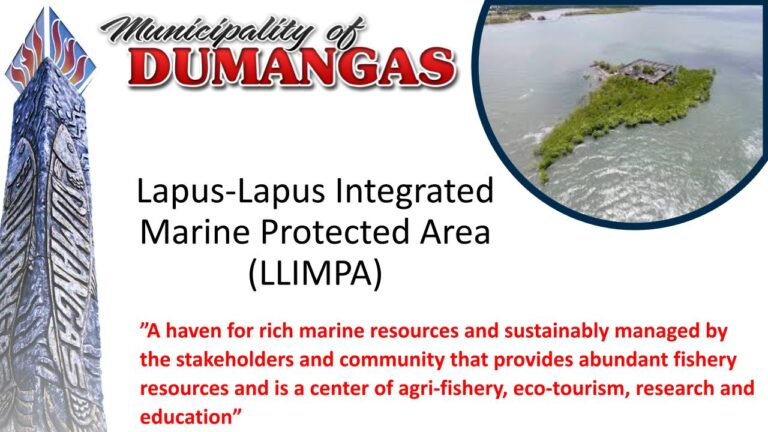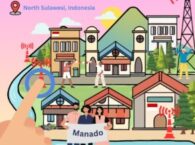Climate Change Awareness and Biodiversity Conservation: Strengthening Community Engagement in the Lapus-Lapus Integrated Marine Protected Area
Metrics
Community
DumangasUniversity
Iloilo Science and Technology UniversityProgram
ProgramYears
2021-2024Case Type
Partnership StoriesFocus Areas
Biodiversity Conservation, Climate Change Adaptation, Marine Conservation, SustainabilityDiscipline
Environmental ScienceRegion
Asia, Global, PhilippinesSustainable Development Goals
13 Climate Action, 14 Life Below Water, 15 Life on LandDumangas, a coastal town in Iloilo Province, is facing increasing challenges due to climate change. The town’s 45 barangays are vulnerable to rising sea levels and biodiversity loss, which are not just environmental issues, but also existential threats to the livelihoods of its residents, many of whom rely on fishing and aquaculture. Unsustainable practices, including illegal fishing, have further degraded marine ecosystems, notably in the Lapus-Lapus Integrated Marine Protected Area (LLIMPA). This area, rich in biodiversity, is threatened by a lack of community awareness and involvement.

The local community has experienced diminishing fish stocks, reduced income, and deteriorating natural resources. These challenges, coupled with the pressing issue of climate change, have exacerbated the community’s vulnerability. It is crucial to recognize the need for enhanced environmental awareness and effective sustainable resource management. As community members fight to adapt to these hardships, they must also find ways to preserve their environment, which is essential for their livelihoods and future well-being.
The opportunity arose with the partnership between the Iloilo Science and Technology University (ISAT U) and the local government of Dumangas. Recognizing that raising awareness and equipping the community with knowledge about climate change and biodiversity conservation could turn the tide, the project sought to empower local stakeholders. By implementing an Environmental Awareness Program, the project aimed to educate residents on sustainable practices that protect biodiversity and improve their livelihoods.
This initiative was also aligned with broader goals such as the United Nations Sustainable Development Goals (SDGs), particularly SDG 13 on climate action, SDG 14 on marine conservation, and SDG 15 on biodiversity conservation. By addressing the root of environmental degradation through education and community involvement, the project saw the potential for long-term sustainability and greater protection of marine resources.
The partnership between ISAT U and the Municipality of Dumangas was central to this initiative. Ms. Flosel P. Almirante, the Municipal Environment and Natural Resources Officer, led the project in Dumangas, working closely with Mr. Eric D. De la Vega, the academic liaison from ISAT U. Together, they integrated practical environmental challenges into the university’s curriculum, engaging students across various disciplines such as Environmental Science, Research, IT/Multimedia Systems, and Architectural Drafting.
Collaboration extended beyond the university and local government to include national and international organizations like the Department of Environment and Natural Resources (DENR), the Zoological Society of London (ZSL) Philippines, and Deutsche Gesellschaft für Internationale Zusammenarbeit (GIZ). These partners provided technical expertise, funding, and resources, creating a robust framework for the project’s success.
“The partnership between ISAT U and our community has been transformative,” said Ms. Almirante. “The knowledge and resources provided by the university and our international partners have not only raised awareness but also empowered the people to take ownership of their environment.”
The collaboration has led to notable successes. Through a series of community workshops, social marketing efforts, and awareness campaigns, residents became more informed about climate change, biodiversity conservation, and sustainable fishing practices. Students played a crucial role in designing digital platforms, creating communication materials, and participating in community awareness drives. This hands-on involvement enriched both the students’ education and the program’s effectiveness.
As a result, LLIMPA has seen increased community engagement, with residents becoming more involved in conservation efforts. Illegal fishing activities have decreased, and there is growing support for the rehabilitation of mangrove forests and the enforcement of sustainable practices. “This project has not only brought knowledge to our people but has fostered a sense of responsibility and pride in protecting our marine resources,” noted Mr. De la Vega.
Looking forward, the partnership between ISAT U and Dumangas will continue to evolve. Plans are in place to expand the EPIC-N model to other barangays and to further integrate sustainability into the university’s academic programs. The municipality also intends to seek additional funding to maintain the momentum of the program and explore ways to scale it for neighboring communities. This collaboration is just the beginning of a larger movement toward environmental stewardship and climate resilience in the region.
Partnership Contact Information
Eric D. De la Vega
Iloilo Science and Technology University
edumilevega1970@gmail.com
Flosel P. Almirante
Municipality of Dumangas
flosel.almirante@gmail.com

Written by: Alice Murphy
Edited by: Kay Phanthuwongpakdee


